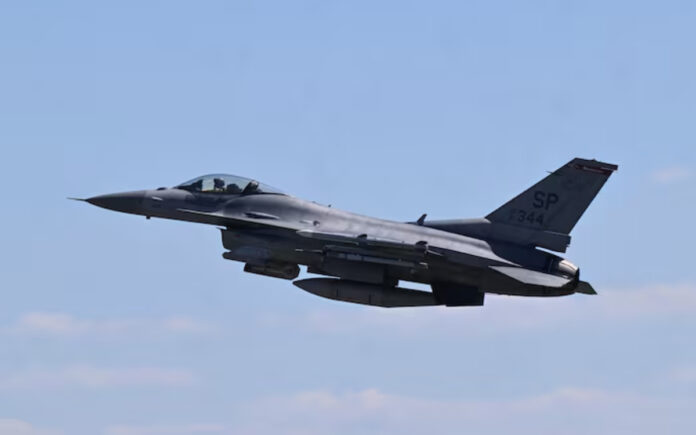Washington: The U.S. State Department has greenlit a potential arms sale to Taiwan worth an estimated $385 million, including spare parts for F-16 fighter jets and radars, the Pentagon confirmed on Friday. This announcement comes just one day before Taiwan’s President Lai Ching-te embarks on a sensitive trip to the Pacific.
Despite the absence of formal diplomatic ties between Washington and Taipei, U.S. law mandates the provision of defense support to Taiwan, a self-governing democracy claimed by China. This decision continues to stir strong reactions from Beijing, which views Taiwan as part of its territory.
Taiwan Rejects China’s Sovereignty Claims
Taiwan firmly rejects China’s claims to its sovereignty, and in recent years, China has significantly increased military pressure on the island. This includes multiple rounds of military exercises in 2023, with experts suggesting that Beijing may conduct further drills coinciding with Lai’s tour of the Pacific, which includes stops in Hawaii and Guam—both U.S. territories.
Details of the Arms Sale
The Pentagon’s Defense Security Cooperation Agency detailed the sale as comprising $320 million in spare parts and support for F-16 fighter jets, as well as Active Electronically Scanned Array Radars and related equipment. Additionally, the U.S. State Department approved the sale of improved mobile subscriber equipment and support, valued at approximately $65 million. General Dynamics has been named as the principal contractor for this portion of the deal.
Taiwan’s Response and Expectations
Taiwan’s defense ministry expressed that the sale will enhance the island’s defense capabilities, ensuring the readiness of its F-16 fleet and contributing to a “credible defense force.” In a statement, Taiwan emphasized its commitment to further strengthening its security partnership with the United States, focusing on peace and stability in the Taiwan Strait and the broader Indo-Pacific region.
Growing U.S.-Taiwan Military Cooperation
This arms deal follows a major $2 billion defense package announced by the United States last month, which included the provision of an advanced air defense missile system previously battle-tested in Ukraine. These transactions highlight the deepening U.S.-Taiwan security cooperation amidst growing geopolitical tensions with China.
Also Read | Zelenskyy Hints at Peace Deal with Russia, Calls for NATO Security Shield
Lai’s Pacific Tour
President Lai’s trip, beginning with a stop in Hawaii on Saturday, is officially a transit en route to the Marshall Islands, Tuvalu, and Palau—three of the 12 nations still maintaining formal diplomatic ties with Taiwan. Lai’s visit is seen as a gesture of Taiwan’s ongoing international engagement despite Beijing’s increasing efforts to isolate the island diplomatically.
Also Read | Factory Growth in China Continues, But U.S. Tariffs Could Cool the Recovery
China’s Reaction
In response to the U.S. approval of the arms sale, China called on the United States to “exercise utmost caution” in its dealings with Taiwan, warning that any actions perceived as supporting Taiwan’s independence would be met with strong opposition.



